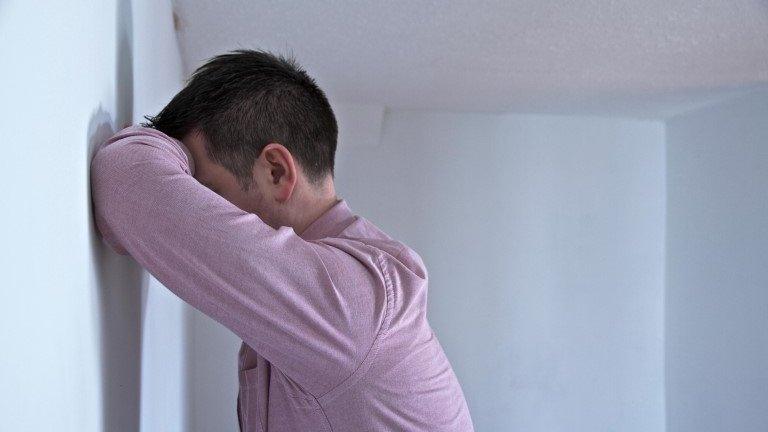How Guyana is trying to combat its high suicide rate
- Published
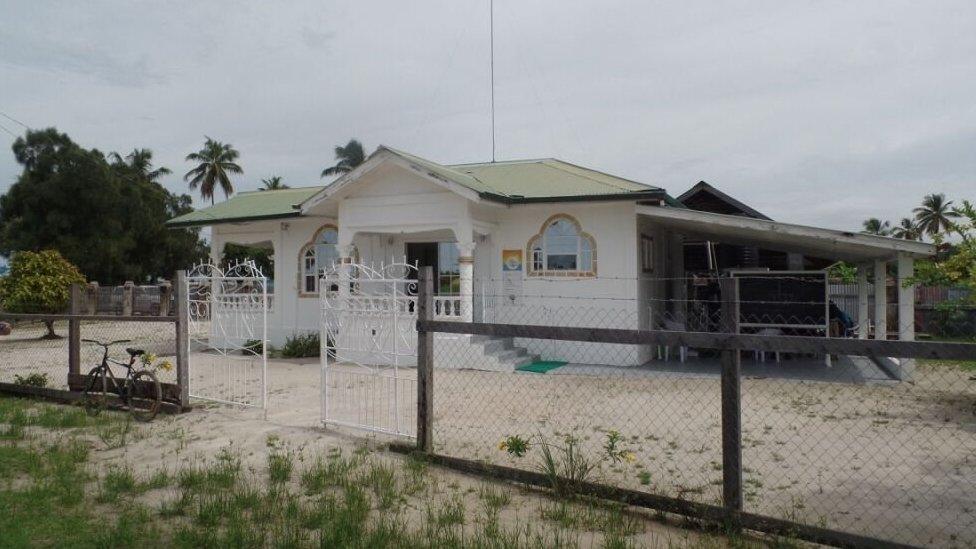
The Sunrise Center aims to help drive down Guyana's high suicide rates
Chattering amiably, heads bent over plugs and wires, enthusiasm among students in the electrical installation class is palpable.
The bright welcoming venue, framed by rice paddies, looks the picture of pastoral contentment.
But behind its creation lies an unsettling reality.
This upbeat community centre was built to address the devastating number of suicides both here on the scenic Essequibo Coast - and in Guyana itself, which holds the dubious distinction of the highest suicide rate in the world.
World Health Organization figures claim 44.2 in every 100,000 Guyanese take their own lives, compared to a global average of 16.
Shining a light on suicide
The Guyana Foundation, external, the charity behind the Sunrise Center in Zorg-En-Vlygt, has been integral in dragging the phenomenon into the national conversation in a country where stigma surrounding mental health issues has long hindered efforts to alleviate them.
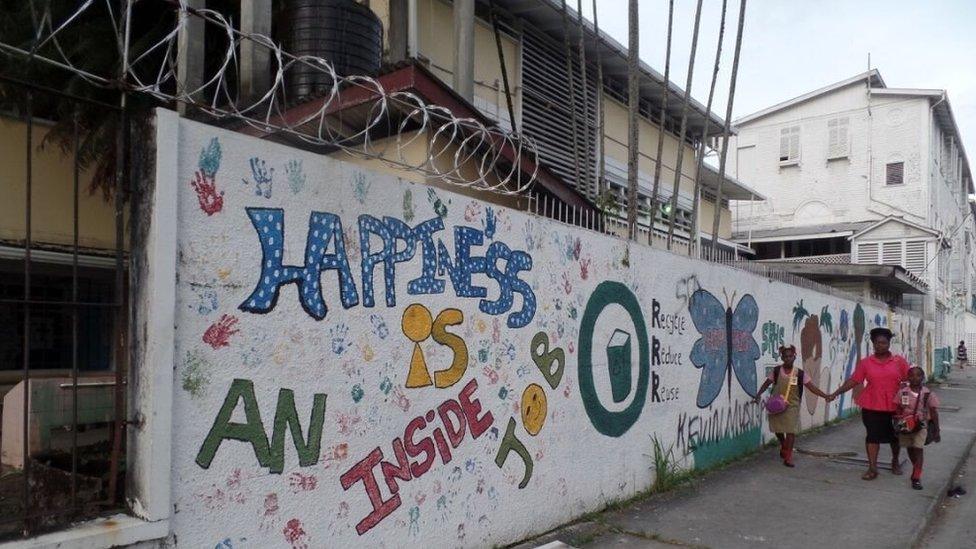
Positive affirmations can be seen in Guyana's capital, Georgetown
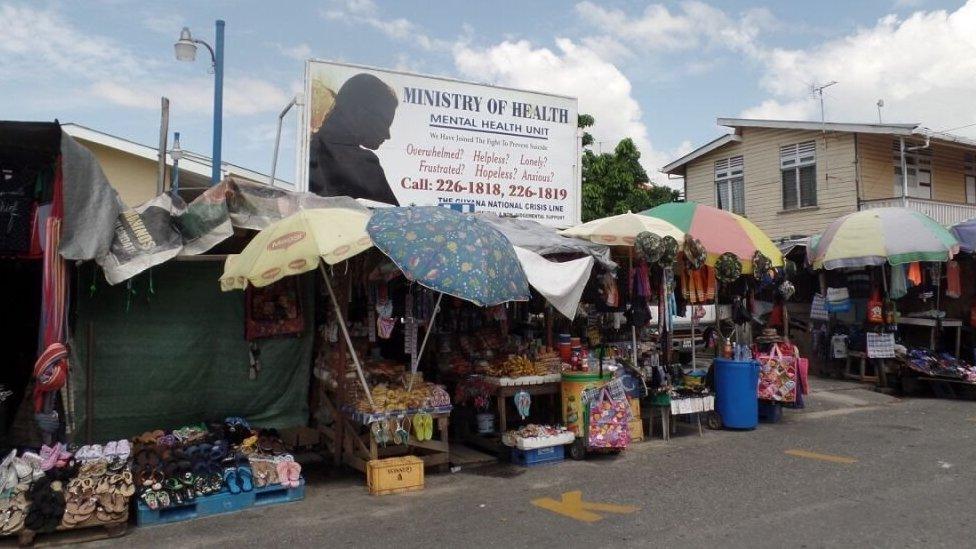
Awareness of mental health issues is increasing in Guyana
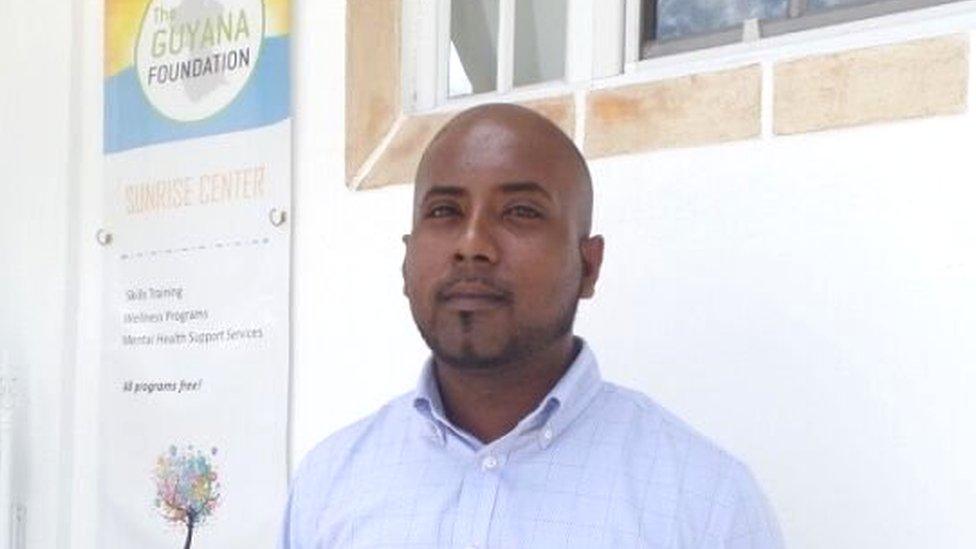
Anthony Autar thinks learning skills gives young people a brighter outlook
A lack of adequate mainstream facilities and woefully outdated legislation - which still defines patients as "idiots" suffering "derangement" - are just some of the obstacles, says the centre's managing director Anthony Autar.
Attempted suicide is still technically illegal in Guyana, carrying a custodial sentence of two years, although measures are under way to decriminalise it.
"When considering mental health issues, we also look at people's ability to contribute to society," Mr Autar tells the BBC.
"Learning a skill like catering or floral arrangement can improve their sense of worth and outlook for the future."
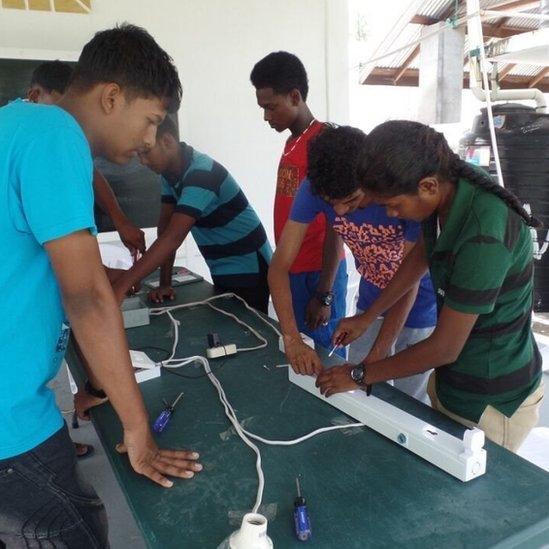
Youngsters are taught practical skills at the Sunrise Center
Dress-making, tie-dye and yoga are also among the free courses open to the public at the facility which launched operations in June, ahead of its official October 29 opening.
"We often find people who come here are isolated and don't have many strong connections. We encourage students to build friendships with each other; those relationships can help save someone's life if they're feeling suicidal," Mr Autar adds.
Attendees are routinely invited to complete questionnaires assessing their emotional wellbeing and are informed about the free counselling services offered.
It's part of a proactive approach to tackle depression, anxiety and low self-esteem, and remove stigma by teaching people such feelings "are as common as diabetes", says counsellor Haimraj Hamandeo.
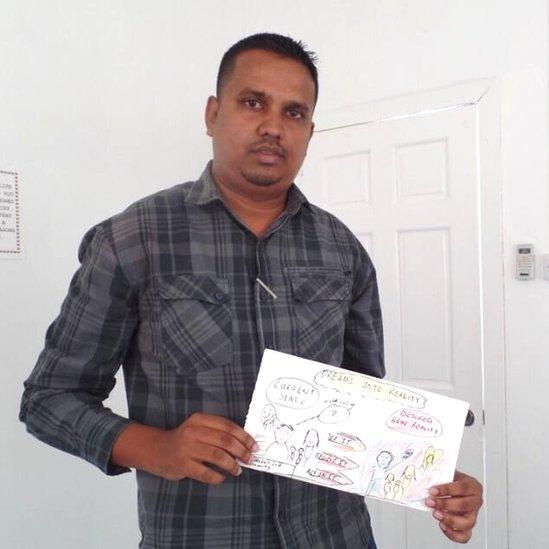
Haimraj Hamandeo says art therapy can help reduce suicidal tendencies
Participants are predominantly aged 25 to 45, and 75% are female. "Females are more open to assistance," Mr Hamandeo continues.
"They're also more likely to attempt suicide; men are more likely to be successful at it."
Opinion on just why Guyana tops the global suicide list is divided. A panel discussion organised by the University of Guyana to mark World Suicide Prevention Day in September cited relationship issues, political upheavals, poverty and high crime as contributory factors.
Indo-Guyanese account for 80% of suicides, despite making up just 40% of the population in the six-race nation. Most are aged 15 to 34, with almost four men to each female.
Poisoning by agricultural pesticides accounts for 65% of cases while one in five is by hanging.
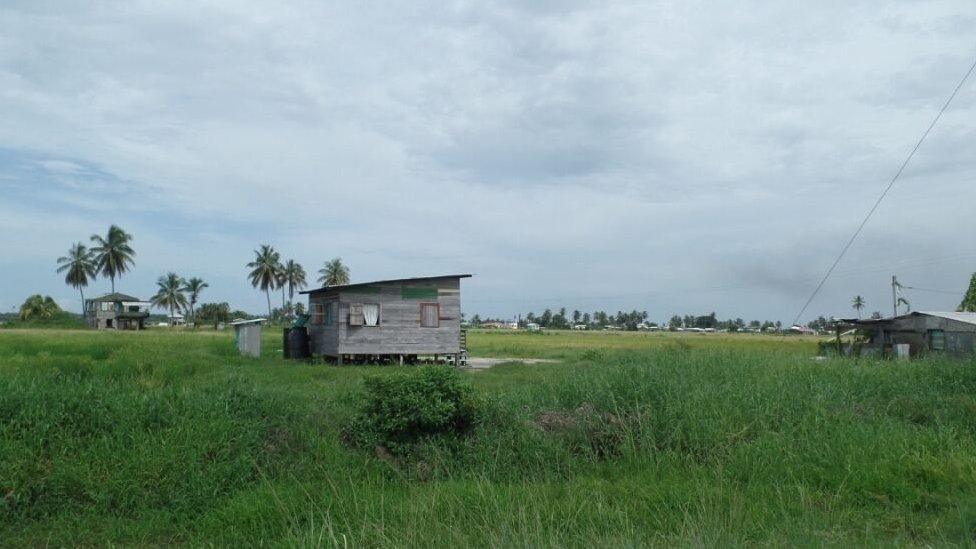
Suicide is particularly prevalent in Guyana's rural agricultural communities like Zorg-En-Vlygt
For each successful suicide, there's up to 25 more attempted cases, says Dr Bhiro Harry, head of psychiatry at Georgetown Public Hospital.
"Many Indo-Guyanese are farmers so they have easy access to lethal pesticides," he explains.
"Culturally, Indo-Guyanese folks are 'babied'. For example, I have three children in their 20s all living at home; I still make my son's breakfast every morning. Afro-Guyanese tend to have less close families and are taught to be strong and resilient."
Conversely, social science lecturer Paulette Henry thinks "broken families" is a prime cause.
After being personally touched by suicide when a close friend killed himself, she testifies to the emotions affecting those left behind too.
"I dealt with anger, pain, a sense of loss and guilt," she says, "as a social worker I felt I should have recognised the signs."
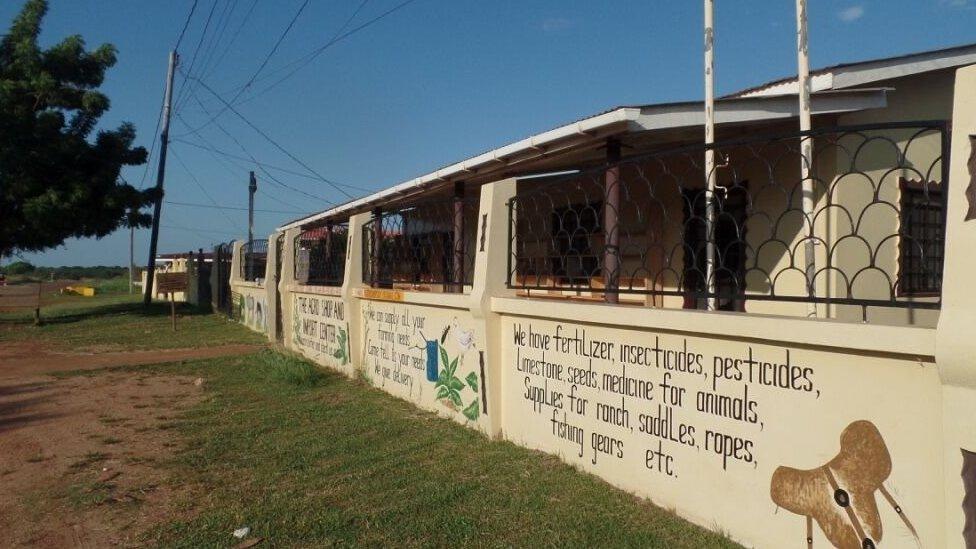
Many believe reducing access to dangerous pesticides is crucial to stemming Guyana's high suicide rate
Public Health Minister Dr George Norton describes Guyana's existing national psychiatric hospital as "not fit for human consumption".
He told the BBC mental health was his "personal priority" and that a national suicide prevention plan was currently being devised. That includes training additional psychiatrists and the creation of a psycho-social rehabilitation venue.
Back at the Sunrise Center, Mr Hamandeo says engagement in "productive" activities had seen great successes.
"Often people find an ability they didn't know they had. You see a change in the way they communicate, the way they greet you, their extra energy."
That is music to the ears of centre founder Supriya Singh Bodden who must raise $3,500 (£2,850) a month from donations to run the facility - and plans to establish more across the country.
"I got so depressed reading about the suicides every day, I just wanted to bring some hope into communities suffering poverty and lack of opportunity," she explains. "If we can touch people's lives in a positive way so they want to live to see another sunrise, then we have achieved something."
- Published8 September 2016
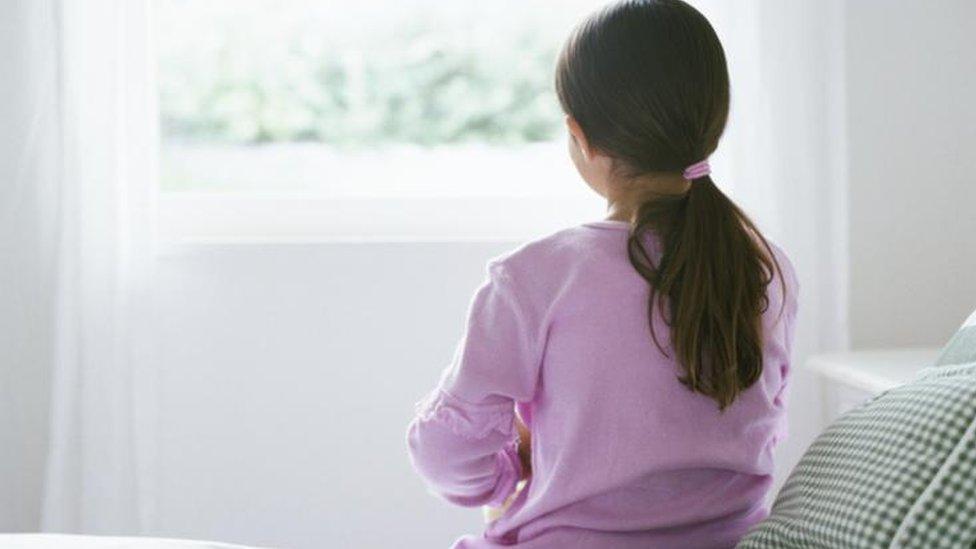
- Published25 May 2016
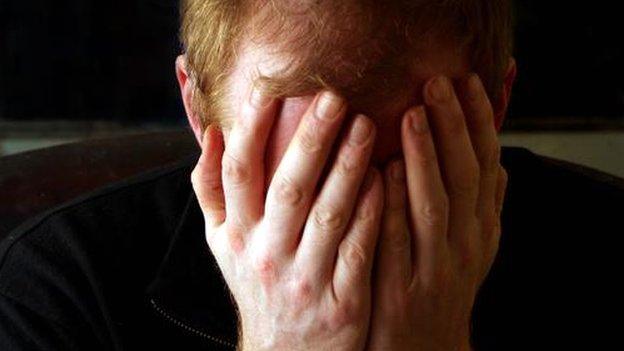
- Published30 August 2015
